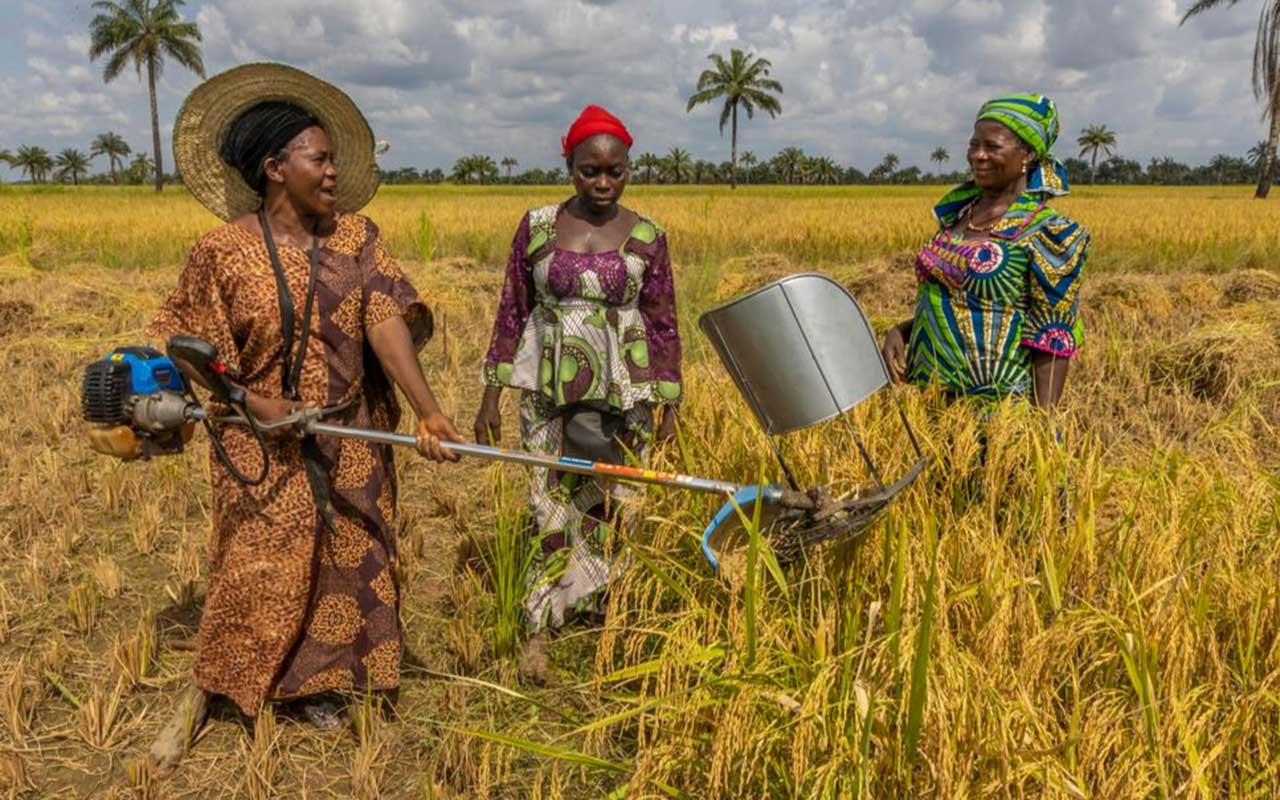The German government officially launched the Carbon Offsetting Rice Emissions (CORE) Project on Tuesday, aimed at supporting 12,000 smallholder farmers in Benue, Nasarawa, and Kano states with climate-sensitive rice farming.
The three-year project was funded by the German Federal Ministry for Economic Cooperation and Development (BMZ) and implemented by Deutsche Gesellschaft für Internationale Zusammenarbeit (GIZ) GmbH in partnership with Olam Agri.
Deputy Head of Mission at the German Embassy in Nigeria. Johannes Lehne, during the official launch in Abuja, disclosed that the project has a funding budget of 2.5 million euros and an implementation period from 2024 to 2027.
He stated that the project will promote climate-smart rice cultivation practices that reduce greenhouse gas (GHG) emissions while enhancing agricultural innovation, sustainable value creation, and long-term development in Nigeria’s rice sector.
He mentioned that as the impacts of climate change intensify, there is a need for practical steps to mitigate emissions and support the resilience of agricultural systems.
Lehne said, “Through this pilot carbon project, we aim to demonstrate what a credible, transparent, and inclusive agricultural carbon project can look like. It is our contribution to laying the groundwork for a future where farmers can benefit from climate action, and carbon markets can thrive in a way that truly supports sustainable development.”
The German Ambassador to Nigeria mentioned that his country remains at the forefront as a contributor to climate finance for developing countries as the German government continues to leverage public funds to attract private climate finance through revolving credit lines, structured funds, and PPPs, contributing a total of €9.94 billion in 2023.
He disclosed that German Federal Ministry for Economic Cooperation and Development (BMZ), together with its co-financing partners, the Gates Foundation and the European Union, has committed a total of €117 million to its current agricultural portfolio in Nigeria and ECOWAS, adding that the funding is dedicated to transforming Nigeria’s agri-food system by enhancing food and nutrition security, generating employment, fostering inclusive economic growth, and promoting resilience through climate-smart agricultural practices.
GIZ’s Implementation Manager for the CORE Project, Alexis Brakhan, stated that the project will promote techniques such as Alternate Wetting and Drying, as well as the production and application of biochar, to improve soil health and reduce greenhouse gas emissions.
He stated that the CORE Project is developing a high-quality carbon initiative in climate-smart rice farming that can reduce emissions and empower smallholders. By linking sustainable agricultural practices to carbon markets, it establishes a bold and scalable model for transforming agri-food systems.
Senior Vice President of Rice at Olam Agri, Paul Nicholson, stated that the project reflects Olam Agri’s deep commitment to both food security and environmental stewardship, noting that the potential for carbon credits ensures that farmers are not only part of the fight against climate change but also benefit from their efforts in climate-smart agriculture.
The Special Assistant to the President on Climate Change, Mr Olamide Fagbuji, called on public and private sector stakeholders to invest in similar climate-smart agriculture projects and scale the CORE model across Nigeria’s rice belts. He said, “Let us ensure that innovation becomes the norm, not the exception, in how we grow our food and protect our planet.”
